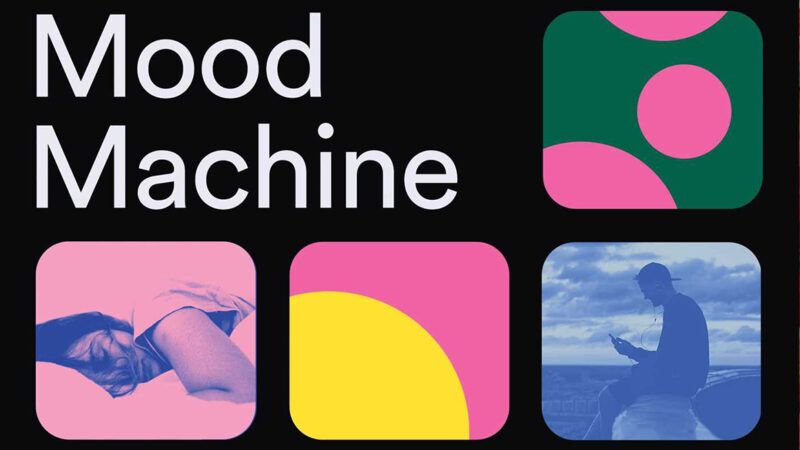Review: In Defense of Spotify
Liz Pelly's Mood Machine book bemoans the music giant but overlooks how useful it is for listeners.

Critiques of technology often downplay, deny, or ignore the advantages that tech firms offer to their users. Take Mood Machine, Liz Pelly's book assailing the audio streaming giant Spotify.
Some of Spotify's practices, well-explained here, are aggravating. There is a growing reliance on stock "chill" sounds that may have been generated by AI. Sometimes the system feeds tracks to you largely because the owners agreed to smaller payouts. Users might not love how much optimized data about their interests are sold to marketers.
And yes, one can muse philosophically about how "authentic" an engagement with new music is when algorithms feed it. But this Spotify user is highly impressed at how well the streamer collates new-to-me music I value. Musicians who sold control of their recording rights to a label are understandably annoyed at the specifics of how poorly they're recompensed by users playing their songs. But the ease and depth of discovering, hearing, and organizing your music Spotify provides is staggering.
Pelly is a progressive. She cheers for unions; she muses about big social changes that she thinks would let more people make or appreciate music unmediated by corporate power; she celebrates public libraries running their own local streaming services, even when they pay artists just $100 a year to license an album. She grants on the very last page that "universal access to music matters," yet her book won't acknowledge that Spotify has come the closest to that of any human invention in history, even if listeners benefit more than musicians.
Editor's Note: As of February 29, 2024, commenting privileges on reason.com posts are limited to Reason Plus subscribers. Past commenters are grandfathered in for a temporary period. Subscribe here to preserve your ability to comment. Your Reason Plus subscription also gives you an ad-free version of reason.com, along with full access to the digital edition and archives of Reason magazine. We request that comments be civil and on-topic. We do not moderate or assume any responsibility for comments, which are owned by the readers who post them. Comments do not represent the views of reason.com or Reason Foundation. We reserve the right to delete any comment and ban commenters for any reason at any time. Comments may only be edited within 5 minutes of posting. Report abuses.
Please to post comments


One can access music from YouTube for free. And the artist can benefit from ad revenue.
I've discovered bands and even entire styles of music I might never have heard of without YouTube. In many cases I went on to buy CDs or MP3s, so hopefully the artists got at least a little something for their trouble.
I only came to try to comprehend the idea of an entire book about Spotify being written and published. I don't.
Spotify is like the worst disc jockey ever. I haven't listened to it for about a decade but I remember picking a song, then it would play another that "fit", the 3rd was like WTF? and after that it was some other genre that was not remotely complementary to the set. Hitting "Shuffle" on a player from a USB stick filled with a gig of digital files is more intuitive.